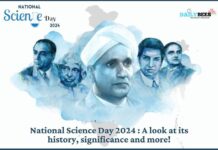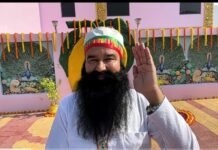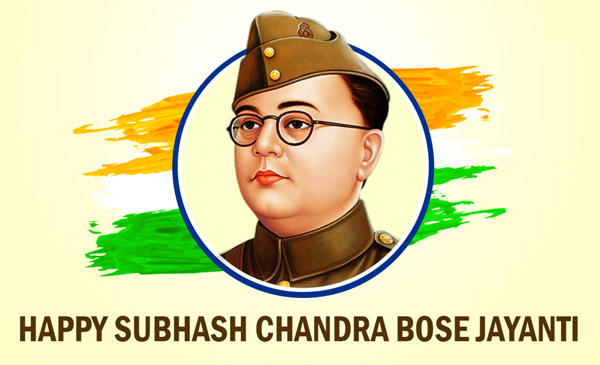SUBHASH CHANDRA BOSE JAYANTI
Having indomitable courage, Subhash Chandra Bose, born in Cuttack was one of the revolutionaries during the British Era in India. His patriotism made him a national hero in millions of hearts and thus he is remembered by Indians with glory and pride.
Subhash Chandra Bose Jayanti is celebrated to honor and remember our Netaji as one of the greatest freedom fighters of India who contributed to the Indian freedom struggle by filling many hearts with the feeling of patriotism and love for the country and its people.
BRIEF INTRODUCTION OF SUBHASH CHANDRA BOSE
Born on – 23rd January 1897
Birthplace – Cuttack
Father – Janakinath Bose
Mother – Prabhavati Dutt
Educational background of Subhash Chandra Bose:
After completing his matriculation from the Protestant European School Of Cuttack, Subhash Chandra Bose then got himself into Presidency college in Cuttack (this is now a university). From here he was expelled by the college authorities by putting some false allegations under his name and this become one of the events in the life of Subhash Chandra bose which ignited a strong sense of rebellion in him. Along with this the mistreatment which the Indians were facing in the hands of Britishers greatly enhanced his thoughts of rebellion.
Later Subhash Chandra Bose join “Scottish Church College” one of the colleges under the university of Calcutta from there he had his graduation degree in “Philosophy” in the year 1918 and later on he started preparing for the Indian Civil Services exams which he cleared in the very first an attempt but he was not content or happy with it because the thought of him working under the Britishers make him think that he is not going per his ethics.
JOURNEY OF FREEDOM STRUGGLE
Subhash Chandra Bose’s journey of getting India free from Britishers when he met Mahatma Gandhi and Pandit Jawaharlal Nehru. Subhash Chandra Bose associated with them due to their efforts for the freedom of India. Following the influence of Mahatma Gandhi Subhash Chandra Bose eventually became a member of the India National Congress.
POLITICAL JOURNEY OF SUBHASH CHANDRA BOSE
Subhash Chandra Bose’s political journey started during his time in Indian National Congress. With his amazing leadership skills and courage for patriotism, he was chosen as the mayor of Calcutta.
HIS TWO NEWSPAPERS :
During his time he sensed that there is a need to raise awareness among people, he started his newspaper named “SWARAJ” and the main motive behind this newspaper was to promote the idea of self-governance within the country. He was also the chief editor of the newspaper named “FORWARD” which he started in 1923.
SUBHASH CHANDRA BOSE AND INDIAN NATIONAL CONGRESS
For the first time in 1938 at the Haripura session, Subhash Chandra Bose was elected as the President of the Indian National Congress and then again in 1939 at Tripuri Subhash Chandra Bose was elected as the President of the Indian National Congress and at that time he initiated many ways or strategies to fight against Britishers.
DEPARTURE OF SUBHASH CHANDRA BOSE FROM INDIAN NATIONAL CONGRESS :
In 1928 when the Motilal Nehru committee demanded Dominion status for India but Subhash Chandra Bose demanded complete Independence of India from the Britishers Mahatma Gandhi did not agree with the ideas of Subhash Chandra Bose as his ways to get complete Independence and resorted to some violent ways and Mahatma Gandhi was never in favor of using violence to attain freedom for India.
During the commencement of the first world war, Subhash Chandra Bose demanded full Independence from British rule within six months, later on after facing a lot of Criticism from Congress due to this idea, demanding freedom. He then resigned from Indian National Congress and made his progressive group called “FORWARD BLOC”.
GETTING THE HELP FROM EXTERNAL FORCES :
Subhash Chandra Bose started a mass movement against the Britishers using the Indian men engaged in wars with foreign countries and the impact of this was that Subhash Chandra Bose was put under house arrest at his house in Calcutta.
Letter on Subhash Chandra Bose fled from his house in January 1941 after putting on some disguise thereafter reaching Germany Subhash Chandra Bose met the Nazi leader and tried to convince him to help him and India in its freedom struggle, and in later time he even tried to take help from Japan.
In 1934 Subhash Chandra Bose reached Singapore and met Ras Bihari Bose there. Subhash Chandra Bose joined him and organized “AZAD HIND FAUJ” that is INDIAN NATIONAL ARMY and tried all possible ways to get India free from the clutches of Britishers but he didn’t get succeeded.
At the time he gave a slogan “when we stand the Azad Hind Fauj has to be like a Wall of granite when we March the Azad Hind Fauj has to be like a stream roller”
The Indian National Army liberated Andaman and Nicobar Island but their plans for further liberation fell into a vein when they reached Burman due to weather conditions and the defeat of Japan and Germany in the Second World War proved to be a huge blow to the Liberation journey of Subhash Chandra Bose and Indian National Army. In the plane crash of August 18,1945, Subhash Chandra Bose is believed to be dead.
Subhash Chandra Bose was Influenced by the teachings of Swami Vivekananda on universalism Nationalist thoughts and social services. Subhash Chandra Bose also gives us his ideology stating that “philosophy should be a synthesis between National socialism and communism” for the development of our country and its people.
One of the famous slogans given by Netaji Subhash Chandra Bose is “give me blood and I will give you freedom”.
The life of Netaji Subhash Chandra Bose will always be an inspiration for future generations for his patriotism and fearless attitude






































